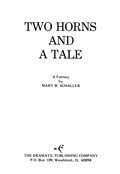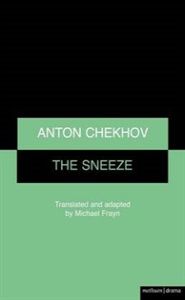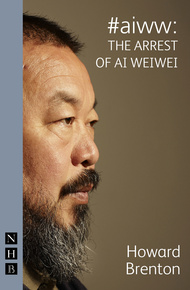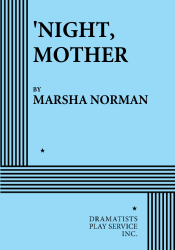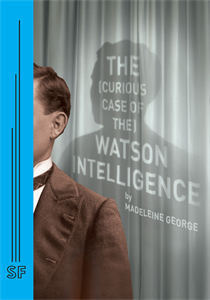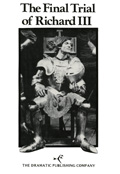
The Final Trial of Richard III
- Full Length Play, Drama
- ISBN: F39
On the eve of the 500th anniversary of the battle of Bosworth Field, a court has been convened in the Halls of Eternity. Richard III, the so-called "most infamous king in history," is the defendant.
Description
- Full Length Play
- Drama
- 70 minutes
- Target Audience: Pre-Teen (Age 11 - 13), Teen (Age 14 - 18), Adult
- Set Requirements: Interior Set
- Performance Group:
- Community Theatre, College Theatre / Student, High School/Secondary
The prosecutors are History and Rumor, while Richard stands in his own defense with only Charity to counsel him. Venerable Time himself sits in judgment, and the audience becomes the jury. Witnesses such as Thomas Moore and William Shakespeare are called to testify, and several scenes of the Bard's Richard III are enacted by The Royal Shakespeare Company as evidence in the trial.
Is Richard guilty of the murders of the Little Princes in the Tower? Did he really kill his own brother, the Duke of Clarence, or Buckingham, Henry VI, Edward of Lancaster or even Anne, his own wife? Is Richard III innocent? Only the jury --the audience-- can decide. The play has a double ending (sentence or pardon) as the jury decides which it will be.
Characters
- Casting:
- Casting Attributes: Flexible casting
- Casting Notes: Large cast.
Available Material
| Name | Price |
|---|---|
|
The Final Trial of Richard III Script
Order Now
On the eve of the 500th anniversary of the battle of Bosworth Field, a court has been convened in the Halls of Eternity. Richard III, the so-called most infamous king in history, is the defendant. The questions Is Richard truly deserving of his evil reputation or has he been the victim of a Tudor smear campaign The prosecutors are History and Rumor, while Richard stands in his own defense with only Charity to counsel him. Venerable Time himself sits in judgment, and the audience becomes the jury. Witnesses such as Thomas Moore and William Shakespeare are called to testify, and several scenes of the Bard's Richard III are enacted by The Royal Shakespeare Company as evidence in the trial. Is Richard guilty of the murders of the Little Princes in the Tower Did he really kill his own brother, the Duke of Clarence, or Buckingham, Henry VI, Edward of Lancaster or even Anne, his own wife Is Richard III innocent Only the jury'the audience'can decide. The play has a double ending (sentence or pardon) as the jury decides which it will be. One int. set. |
$19.95 |
